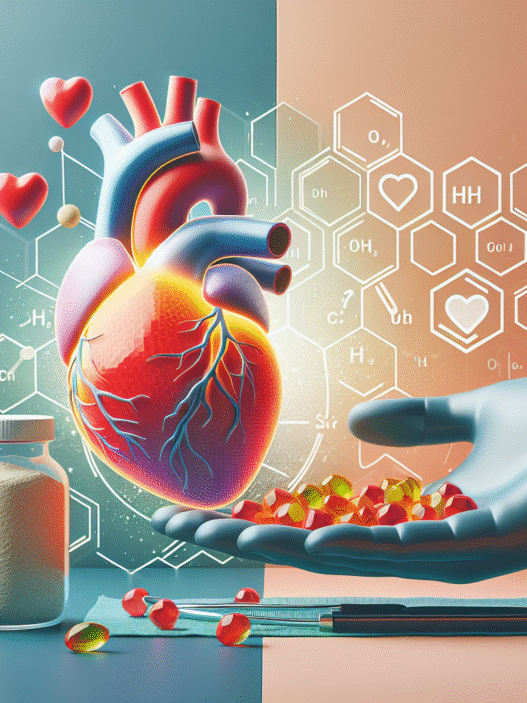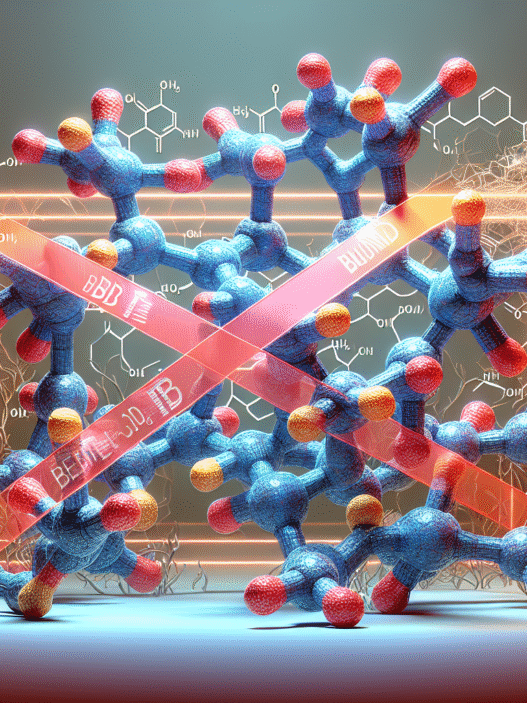Berberine Mechanism of Action
Understanding the mechanism of action of berberine is essential for comprehending its potential benefits and concerns, particularly regarding its influence on gut bacteria. Researchers have identified two primary areas: the impact on gastrointestinal microbiota and the regulation of cellular targets.
Gastrointestinal Microbiota Influence
Berberine has been shown to affect the composition of gastrointestinal microbiota, which plays a critical role in overall health. Studies reveal that taking berberine can lead to a reduction in the diversity of the microbiota. Specifically, it influences the relative abundance of key bacterial populations, such as Desulfovibrio, Eubacterium, and Bacteroides. This shifting balance in gut bacteria is significant because an imbalance, particularly in the ratio of Firmicutes to Bacteroidetes, has been associated with various diseases (PubMed Central).
In addition, berberine can reduce the levels of lipopolysaccharides (LPS) in the blood by decreasing the quantity of certain LPS-producing bacteria like Proteobacteria. This reduction may lead to improvements in metabolic endotoxemia and help regulate intestinal permeability, which is crucial for maintaining a healthy gut.
| Effect | Mechanism | Outcome |
|---|---|---|
| Decrease in Microbiota Diversity | Alters bacterial composition | Potential disease risk reduction |
| Reduced LPS Levels | Lowers abundance of LPS producers | Improved metabolic health |
Cellular Targets Regulation
Berberine’s mechanism of action is not limited to its influence on gut bacteria; it also interacts with cellular targets within the body. Berberine exerts multi-target effects that include modulating lipid and glucose levels in the bloodstream. This compound has been associated with the enhancement of beneficial bacteria in the gut, particularly Akkermansia muciniphila, which helps strengthen intestinal barrier function through improved mucus production. This may contribute to the prevention of metabolic disturbances, especially those induced by high-fat diets (NCBI).
Additionally, berberine is shown to influence the signaling pathways involved in glucose metabolism, making it a promising agent for individuals dealing with conditions like insulin resistance. The interaction of berberine with these cellular mechanisms is still an active area of research, especially in functional and holistic medicine contexts where its potential therapeutic applications are being explored.
In summary, berberine’s mechanism of action encompasses both its influence on gut microbiota and its cellular regulatory effects. Understanding the implications of these mechanisms is critical in answering the question: does berberine harm gut bacteria?.
Therapeutic Effects of Berberine
Berberine has been recognized for its promising therapeutic effects in a variety of health conditions. Its role in treating metabolic diseases, along with its cardiovascular and neuro-protective benefits, makes it a notable subject in holistic wellness.
Metabolic Diseases Treatment
Berberine has been extensively studied for its effectiveness in treating metabolic disorders such as diabetes, obesity, non-alcoholic fatty liver disease (NAFLD), and hyperlipidemia. Research indicates that berberine can help to ameliorate insulin resistance, lower blood sugar levels, and decrease hemoglobin A1c, which is vital for managing diabetes. It has also been shown to reduce body weight, body mass index, and waist circumference in obese patients diagnosed with type 2 diabetes.
The following table highlights some of the specific benefits of berberine in the treatment of metabolic conditions:
| Condition | Effect of Berberine |
|---|---|
| Type 2 Diabetes | Ameliorates insulin resistance, lowers blood sugar and hemoglobin A1c |
| Obesity | Reduces body weight, BMI, and waist circumference |
| Non-Alcoholic Fatty Liver Disease | Improves hepatic fat content and lipid levels |
| Hyperlipidemia | Reduces total cholesterol, triglycerides, and LDL-C levels |
Additionally, berberine influences gut microbiota, which enhances its therapeutic effects. It promotes the absorption and utilization of the compound in the body through the activation of nitroreductases-producing bacteria, strengthening intestinal barrier function, and regulating inflammation (NCBI).
Cardiovascular and Neuro-Protective Effects
Berberine exhibits cardiovascular and neuro-protective properties. This is partly achieved through its regulation of various cellular targets, such as the low-density lipoprotein receptor (LDLR) and insulin receptor (IR), alongside its anti-inflammatory and antioxidant activities.
Through its cardio-protective effects, berberine can lower levels of harmful lipids and improve overall heart health, making it relevant for those concerned about cardiovascular diseases.
| Effect | Mechanism of Action |
|---|---|
| Cardiovascular Protection | Regulates LDL receptor, lowers cholesterol levels |
| Neuro-Protective | Reduces oxidative stress and inflammation in brain cells |
Berberine’s influence on both metabolic disorders and protection of cardiovascular health reflects its potential as a holistic health remedy. For those exploring its benefits in relation to gut health, questions arise about does berberine harm gut bacteria?, given its multifaceted effects.
Impact on Lipid and Glucose Levels
Berberine has gained attention for its potential to positively affect lipid and glucose levels in the body. This section outlines the benefits related to lipid reduction and the mechanisms by which berberine regulates glucose levels.
Lipid Reduction Benefits
Berberine treatment has been demonstrated to significantly reduce serum levels of several lipids, including total cholesterol, triglycerides, and low-density lipoprotein (LDL) cholesterol. At the same time, it has been shown to increase high-density lipoprotein (HDL) cholesterol levels, which is often referred to as the “good” cholesterol (PubMed Central). The following table summarizes the lipid changes observed in clinical studies:
| Lipid Type | Change Effect |
|---|---|
| Total Cholesterol | Decrease |
| Triglycerides | Decrease |
| LDL Cholesterol | Decrease |
| HDL Cholesterol | Increase |
These effects are attributed to berberine’s ability to modulate the composition of the gastrointestinal microbiota, which in turn influences lipid metabolism. Certain gut bacteria associated with hyperlipidemia are reduced as a result of berberine treatment, further enhancing its lipid-lowering effects.
Glucose Regulation Mechanisms
In addition to its lipid-lowering properties, berberine has been shown to play a significant role in glucose regulation. It reduces blood glucose levels through various mechanisms, including the modulation of gut microbiota composition and the reduction of lipopolysaccharide (LPS)-producing bacteria.
Studies have noted that berberine decreases the abundance of bacteria linked to metabolic endotoxemia, such as Desulfovibrio, Enterobacter cloacae, and Vibrio desulfuricus. By doing so, it helps regulate intestinal permeability and improve metabolic disorders related to insulin resistance. The following table outlines the impact of berberine on glucose levels:
| Effect | Observations |
|---|---|
| Glucose Levels | Decrease |
| Insulin Sensitivity | Improved |
| Gut Microbiota Diversity | Decreased |
Initial findings show that berberine’s multi-target mechanisms are essential for these beneficial effects on glucose regulation. With continued research, these insights help to address the ongoing question of does berberine harm gut bacteria? while showcasing its potential role in managing metabolic health.
Berberine and Cancer Prevention
Berberine has garnered attention for its potential role in cancer prevention, particularly in relation to colorectal cancer and tumor proliferation.
Colorectal Cancer Inhibition
Research has indicated that berberine can inhibit the development of colorectal cancer. It does this by promoting the interaction between retinoid X receptor alpha and nuclear beta-catenin, effectively reducing the proliferation of colon cancer cells. This mechanism highlights berberine’s potential as a protective agent against colorectal cancer, suggesting that it may play a significant role in cancer prevention strategies (PubMed Central).
Tumor Proliferation Prevention
In addition to its effects on colorectal cancer, berberine demonstrates promise in preventing tumor proliferation in various types of cancers. By enhancing cellular mechanisms that regulate growth and apoptosis (programmed cell death), berberine can help to slow down or halt tumor growth. Research continues to support its capabilities in modulating key pathways involved in cancer progression, making it a significant subject of study in oncology.
These effects may provide insights for individuals interested in using natural compounds for cancer prevention. Utilizing herbs like berberine in a holistic wellness approach could contribute to improved health outcomes.
For further exploration on the potential downsides of berberine, consider reading our article, is there a downside to taking berberine?. It’s also important to consider various factors, such as who should avoid this compound, as outlined in who shouldnt take berberine?.
Influence on Gut Microbiota
The impact of berberine on gut bacteria has garnered significant attention in recent research. Understanding how berberine alters microbiota composition and its beneficial effects on gut health is essential for those exploring its health benefits.
Microbiota Composition Changes
Berberine has been shown to reduce the diversity of gastrointestinal microbiota, influencing the abundance of various bacterial species. Specifically, it can decrease populations of bacteria such as Desulfovibrio, Eubacterium, and Bacteroides, while enriching butyrate-producing bacteria. Changes in gut microbiota composition have been observed in patients with hyperlipidemia, where berberine treatment increased Bacteroides, Parabacteroides, and Blautia, while reducing levels of Prevotella, Escherichia, Clostridium, and Sutterella (PubMed Central).
| Bacterial Genera | Impact of Berberine Treatment |
|---|---|
| Increased | Bacteroides, Parabacteroides, Blautia |
| Decreased | Prevotella, Escherichia, Clostridium, Sutterella |
The alterations in microbiota composition can lead to reduced low-grade inflammation and improved gut health.
Butyrate and SCFA Production
Berberine enriches the population of butyrate-producing bacteria within the gut. Butyrate is a short-chain fatty acid (SCFA) that enters the bloodstream and contributes to lower lipid and glucose levels. SCFA-producing bacteria play a vital role in maintaining gut health, as they protect the mucosa, supply nutrients to colonocytes, and mitigate inflammation.
Furthermore, berberine has been shown to increase the number of SCFA-producing bacteria, which positively influences glucose homeostasis, insulin sensitivity, and inflammatory response.
| SCFA Benefits | Impact on Health |
|---|---|
| Protects mucosa | Supports gut integrity |
| Provides nutrients | Fuels colonocyte metabolism |
| Mitigates inflammation | Reduces gut-related issues |
Berberine’s ability to induce cell death in harmful intestinal bacteria while promoting beneficial species enhances its therapeutic effects on metabolism-related diseases. It can be metabolized by gut microbiota to improve its effectiveness, showcasing its multifaceted role in gut health.
For more insights into the potential drawbacks of berberine, feel free to explore our article on is there a downside to taking berberine?.
Safety and Efficacy of Berberine
Clinical Benefits and Low Toxicity
Berberine has been widely studied for its potential health benefits and low toxicity levels. Originating in China, it has been utilized to address a variety of conditions, including obesity, diabetes mellitus, atherosclerosis, and various metabolic diseases. Berberine is particularly valued for its clinical effects at standard doses, effectively managing metabolic disorders without significant adverse effects.
The table below summarizes the primary clinical benefits of berberine:
| Condition Treated | Clinical Benefit |
|---|---|
| Obesity | Weight loss and BMI reduction |
| Diabetes Mellitus | Improved insulin sensitivity & reduction in blood sugar levels |
| Hyperlipidemia | Lowered lipid levels in blood |
| Non-Alcoholic Fatty Liver Disease | Enhanced lipid profiles and reduced hepatic fat content |
Berberine’s efficacy can also be linked to its effects on gut microbiota. When ingested, berberine interacts with gut bacteria that play a role in its metabolic processes. Certain bacteria such as Bacteroides have been found to be enriched in subjects treated with berberine, while others may see a reduction, which can influence general health and metabolic rates (PubMed).
Therapeutic Potential Evaluation
The therapeutic potential of berberine continues to be evaluated in both clinical settings and research studies. Its multifaceted mechanism of action includes the modulation of gut microbiota, which is pivotal in enhancing its absorbability and efficacy against metabolic diseases. Specifically, nitroreductases produced by gut bacteria convert berberine into its more absorbable form, Dihydroberberine (DhBBR), significantly improving its therapeutic effects (NCBI).
Studies have demonstrated substantial improvements in various metabolic parameters among participants, such as:
| Parameter | Impact of Berberine |
|---|---|
| Blood Sugar Levels | Decreased |
| Hemoglobin A1c Levels | Lowered |
| Body Weight | Reduced |
| Waist Circumference | Decreased |
Berberine’s use in clinical settings is associated with ameliorating insulin resistance and improving overall metabolic health, particularly in individuals diagnosed with type 2 diabetes or obesity. Despite its clinical advantages, users should remain informed about potential interactions and contraindications. For more detailed information, please see our articles on whether berberine is bad for the heart and who shouldn’t take berberine.
Overall, while the current evidence supports the safe use of berberine, further research into its long-term effects and interaction with gut microbiota is essential to clarify any potential risks or downsides such as found in our discussion on is there a downside to taking berberine?.





















